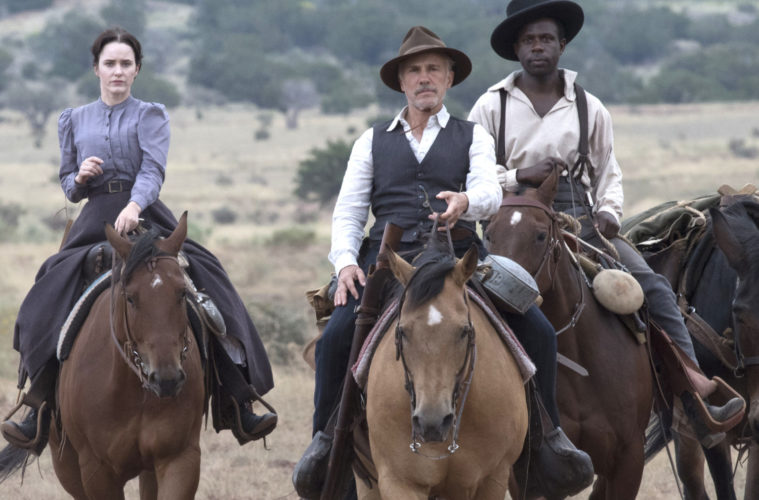 As artists grow older, their vision expands, or at least changes. Walter Hill’s has pretty much stayed the same. Now at the ripe old age of 80, Hill has once again made an action film as preoccupied with loners and their codes as any of his previous films—western or otherwise. This time around, the budget is slimmer and the dramatic texture thinner. Dead for a Dollar misses the mark as a drama, a genre exercise, and a philosophical statement. It saunters when it should sprint and trots when it should gallop.
As artists grow older, their vision expands, or at least changes. Walter Hill’s has pretty much stayed the same. Now at the ripe old age of 80, Hill has once again made an action film as preoccupied with loners and their codes as any of his previous films—western or otherwise. This time around, the budget is slimmer and the dramatic texture thinner. Dead for a Dollar misses the mark as a drama, a genre exercise, and a philosophical statement. It saunters when it should sprint and trots when it should gallop.
The story centers on bounty hunter Max Borlund (Christoph Waltz) who takes a job to track down the wife (Rachel Brosnahan) of a rich politician (Hamish Linklater) who has apparently been abducted by a Buffalo Soldier (Brandon Scott) and taken to Mexico. He is aided by another cavalry officer (Warren Burke) from the same regiment, but their path is obstructed by a professional gambler (Willem Dafoe) recently released from prison, as well as a brutal landowner (Benjamin Bratt) who holds the local law enforcement firmly under his thumb. These disparate characters intersect in predictable ways, and miss no opportunity to toss Western clichés at each other between shootouts. The screenplay by Matt Harris and Hill is elevated—though not much—by the staunch professionalism of a muscular cast.
Dead for a Dollar screened out of competition at the Venice Film Festival earlier this month where Hill received a special “Glory to the Filmmaker” award. While it’s gratifying to see a living legend get his dignified due, the gesture had little to do with the merits of the film at hand, which falls far short of the director’s best work. It’s especially dispiriting to see such an old hand as Hill succumb to the temptations of contemporary low-budget filmmaking: a zoom-happy, drone-prone camera, a colorless digital image, and sets that looked barely lived in.
Walter Hill’s elegiac work in Westerns—The Long Riders, Geronimo, Wild Bill—has always negotiated a suitable position between the traditional and the revisionist, and there are nods to the changing times in this one as well. Both the pursued and pursuing soldiers are black and have at least one racially charged confrontation with an adversary, the best of which involves a mano-a-mano duel of bullwhips. The pistol packing runaway bride is situated as a liberated “modern” woman (“I’ve always resisted traditional morality”) in a world of murderous men. But the end credits reveal a clue as to where its heart truly lies: “Dedicated to the memory of Budd Boetticher.”
To make a film that espouses the timeworn virtues of a neglected American genre is one thing, but to offer it as a libation to one of its supreme stylists is quite another. In the end, the most moving thing about Dead for a Dollar is not what happens in it; it’s that the movie exists at all.
Editor’s note: The disclaimer below refers to advertising posts and does not apply to this or any other editorial stories. LA Weekly editorial does not and will not sell content.
Advertising disclosure: We may receive compensation for some of the links in our stories. Thank you for supporting LA Weekly and our advertisers.

